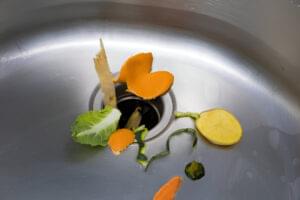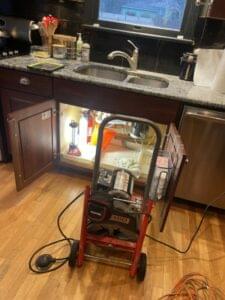A well-functioning plumbing system is essential for any household, ensuring the efficient delivery of clean water and the removal of waste. Common issues like clogged drains, leaks, and pipe bursts can disrupt daily life and lead to expensive repairs. The choice of plumbing material plays a crucial role in either preventing or exacerbating these problems.
Copper plumbing stands out as an ideal solution to avoid costly emergency plumber visits. Its durability, resistance to corrosion, and antimicrobial properties make it a reliable option for long-term use. By investing in copper pipes, homeowners can enjoy a robust plumbing system that minimizes the risk of unexpected failures and emergency repairs.
In addition to choosing the right plumbing material, other factors such as efficient water heating systems also contribute to maintaining a hassle-free household. For instance, considering installing tankless water heaters can further enhance the overall efficiency and cost-effectiveness of your plumbing setup.
Furthermore, it’s not just about the indoor plumbing system. If you’re located in an area like Round Rock, Texas, which boasts beautiful outdoor spaces, you might want to explore what attractions like Old Settlers Park have to offer for recreational activities that complement your well-maintained plumbing infrastructure.
The Advantages of Copper Pipes in Plumbing
Copper pipes are a popular choice for plumbing material due to several compelling reasons:
1. Durability
Copper pipes are incredibly durable, able to withstand both high and low temperatures as well as physical stress without any damage. This makes them perfect for various environments. For example, homes in colder climates benefit from copper’s ability to endure freezing temperatures without cracking.
2. Corrosion Resistance
One of the standout benefits of copper pipes is their resistance to corrosion. Unlike some materials that may rust or deteriorate over time, copper maintains its structural integrity, ensuring a longer lifespan for your plumbing system. Scientific evidence shows that copper can resist corrosion from water with different pH levels, providing a more reliable solution for homeowners.
3. Antimicrobial Properties
Copper has natural properties that make it effective against bacteria and viruses. When water comes into contact with copper surfaces, these microorganisms are killed off, leading to better water quality throughout the plumbing system. Studies indicate that copper surfaces can reduce bacterial contamination by up to 99%, making it a safer option for potable water systems.
4. Non-Toxicity
Copper is completely safe and does not release any harmful substances into the water supply. This makes it a better choice compared to certain plastic alternatives that might leach chemicals into drinking water over time.
5. Ductility
The flexible nature of copper allows it to be easily bent and shaped without breaking, making it ideal for complex plumbing layouts. This flexibility can help reduce labor costs and installation time.
Despite its many advantages, there are some misconceptions regarding copper pipes:
- Cost: While copper might be more expensive upfront than some plastic alternatives, its longevity and low maintenance requirements often offset the initial investment.
- Installation: Working with copper requires specialized tools and skills, which might pose a challenge for DIY enthusiasts. However, professional plumbers are well-equipped to handle these tasks efficiently.
For comprehensive plumbing solutions or emergency services, you might want to explore the services offered by Round Rock Plumbing, which include their expertise in drain cleaning.
Understanding these benefits helps illustrate why copper pipes remain a top choice in modern plumbing systems.
Durability and Longevity
Copper pipes are durable because they can withstand extreme temperatures and physical pressure. They don’t get affected by hot or cold temperatures, which makes them perfect for both hot and cold water supply lines. This stability reduces the risk of pipe bursts or leaks that can result from thermal expansion and contraction.
With proper care and maintenance, copper pipes can last 50 to 70 years, and in many cases, even longer. The long life of copper plumbing systems is one of the main reasons why homeowners choose this material. Regular inspections and preventive measures can significantly extend their lifespan.
Practical Tips for Homeowners
- Insulate Exposed Pipes: Insulating copper pipes, especially those located in unheated areas like basements or crawl spaces, helps prevent freezing during winter months.
- Regular Inspections: Conduct periodic checks for any signs of wear or corrosion. Early detection can prevent minor issues from escalating into costly repairs.
- Maintain Water Quality: Ensure that the water quality is maintained within acceptable parameters. High acidity or mineral content in water can affect the durability of even corrosion-resistant materials like copper.
By following these tips, you can make sure your copper plumbing system lasts longer and works efficiently, reducing the chances of unexpected problems such as pipe leaks that may require immediate attention.
Resistance to Rust and Corrosion
Copper pipes are well-known for their ability to resist rust and corrosion, which is one of the main reasons why they last so long. Unlike iron or steel, copper does not rust. This is because when copper is exposed to air, it forms a protective layer called oxide that prevents further oxidation.
Key Properties of Copper
Here are some key properties of copper that contribute to its resistance against rust and corrosion:
- Non-Ferrous Metal: Copper is a non-ferrous metal, meaning it does not contain iron and therefore wo
- n’t rust.
- Oxide Formation: When copper surfaces come into contact with air, they develop a patina or oxide layer that acts as a shield against corrosion.
- Antimicrobial Nature: Copper naturally possesses antimicrobial properties, which help inhibit the growth of harmful bacteria and viruses inside the pipes.
Importance in Maintaining Water Quality
The ability of copper pipes to resist corrosion is crucial for ensuring good water quality in your home. Corroded pipes have the potential to introduce harmful substances into your water supply, compromising its safety. By using copper pipes instead, you can avoid these risks:
- Prevention of Leaks: Over time, corrosion can cause pinhole leaks in pipes, leading to costly repairs and extensive damage.
- Preservation of Water Taste and Clarity: Copper pipes do not leach impurities into the water supply, helping to maintain its taste and clarity.
Enhancing Corrosion Resistance
In certain situations where different metals are used together in plumbing systems, it may be necessary to take extra measures to prevent corrosion. One effective solution is the use of dielectric unions, which are fittings that prevent galvanic corrosion. Galvanic corrosion occurs when dissimilar metals come into contact with each other in the presence of an electrolyte like water. By installing dielectric unions between copper pipes and other metals (such as steel), you can effectively mitigate this issue.
Understanding the unique advantages of copper’s resistance to rust and corrosion empowers you to make informed choices that protect your home’s plumbing system from common problems like leaks and water contamination. If you want more information on plumbing systems or need professional assistance, you can reach out to experts at Kalahari Resorts and Conventions.
Types of Copper Tubing and Their Applications
Copper tubing comes in various types, each suited for specific plumbing applications. The most common types are Type L and Type M.
Type L Copper Tubing
- Wall Thickness: Thicker walls provide enhanced durability.
- Strength: Suitable for both interior and exterior plumbing.
- Usage: Often used in residential water supply lines.
Type M Copper Tubing
- Wall Thickness: Thinner walls compared to Type L.
- Strength: Less robust but still highly effective for interior plumbing.
- Usage: Commonly used in low-pressure applications like drainage or vent systems.
Comparison with Plastic Pipes
When comparing copper pipes with plastic pipes, there are several factors to consider:
- Cost: Copper is generally more expensive than plastic. However, its longevity can offset the initial investment.
- Longevity: Copper outperforms plastic in terms of durability, often lasting several decades with proper maintenance.
- Eco-Friendliness: Copper is recyclable and has a smaller environmental footprint compared to some plastics.
If you’re experiencing any plumbing issues with your copper tubing, such as leaks, it’s crucial to address them promptly. Trust Round Rock Plumbing, the leading plumbers in Round Rock, Texas, for fast and professional 24/7 emergency repairs, installations & maintenance services.
Importance of Copper Pipe Fittings
Proper fittings are essential for ensuring leak-free connections with copper pipes. The integrity of your plumbing system heavily relies on the quality and type of fittings used.
Common Types of Fittings
- Soldered Fittings
Advantages:
Create strong, permanent joints.
Highly reliable in preventing leaks when installed correctly.
Suitable for both high-pressure and high-temperature applications.
Limitations:
Requires a fair amount of skill to install properly.
Installation involves the use of a torch, which can be a safety hazard if not handled with care.
- Compression Fittings
Advantages:
Easier to install than soldered fittings; no special tools or skills required.
Ideal for situations where future disassembly may be necessary.
Provide a good seal without the use of heat, making them safer to install.
Limitations:
Generally not as robust as soldered joints.
May loosen over time, especially under conditions of constant vibration or movement.
The choice between soldered and compression fittings often depends on the specific requirements of your plumbing system. Soldered fittings are typically favored for their strength and durability, while compression fittings offer ease of installation and flexibility.
For Round Rock homeowners, ensuring proper installation is crucial to prevent leaks and maintain the efficiency of your plumbing system. Regular inspections and maintenance can help mitigate potential issues, keeping your copper pipes in optimal condition.
Moreover, if you reside near popular sports venues like Dell Diamond, it’s essential to have reliable fittings that can withstand high-pressure situations during game days or events.
The Importance of Using a Copper Water Line in Residential Plumbing
Using a copper water line to connect the municipal supply to a residential plumbing system offers several benefits:
- Reliability: Copper is durable and ensures that the water line remains intact, reducing the likelihood of leaks and bursts.
- Corrosion Resistance: Copper naturally resists corrosion, which helps maintain water quality by preventing contamination.
- Temperature Tolerance: Copper can handle a wide range of temperatures, making it suitable for various climates.
While other materials like PVC and PEX are also used for water lines, copper is preferred due to its superior longevity and ability to withstand physical stress. Additionally, homeowners who are interested in energy-efficient options might consider installing tankless water heaters to complement their copper water lines, as these units offer numerous advantages in terms of energy savings and convenience.
Considering Installation Costs and Challenges
Opting for copper plumbing involves several cost considerations. Material expenses can be higher compared to plastic alternatives like PVC or PEX. The price of copper fluctuates due to market demand, making it a more variable expense. Professional installation costs also tend to be steeper because working with copper requires specialized skills and tools.
Challenges of Copper Pipes
Installing copper pipes presents unique challenges:
- Specialized Tools: Tools such as pipe cutters, soldering torches, and flux are essential.
- Skill Requirement: Proper soldering techniques are crucial to ensure leak-free joints.
- Time-Consuming: The process is generally more labor-intensive compared to installing plastic pipes.
Practical Advice for Mitigating Challenges
To achieve a high-quality installation:
- Hire Experienced Plumbers: Opt for professionals with expertise in copper plumbing.
- Use Dielectric Unions: These help prevent corrosion where copper connects to different metals.
- Invest in Quality Tools: Ensure all necessary tools are available if you decide on a DIY approach.
For those living in areas with hard water or other specific needs, consulting a professional plumber in Pflugerville, Texas might offer additional insights tailored to your local conditions. Comparing materials like ABS vs. PVC can provide alternative options, though many find copper’s durability worth the investment (ABS vs. PVC Pipes).
Copper plumbing offers long-term benefits despite higher initial costs and installation challenges.
Conclusion
Copper plumbing has many advantages that make it a great choice for homeowners who want to avoid calling an emergency plumber. It’s strong, resistant to rust, and has properties that can kill bacteria.
But no matter what material your pipes are made of, it’s important to take care of them. Get them checked regularly and fix any problems right away. This will help you avoid big, expensive issues down the road.
We recommend hiring a professional plumber for all your plumbing needs. They have the knowledge and experience to keep your copper pipes in top shape, which means fewer surprises for you.
If you’re looking for reliable plumbing services in your area, consider checking out options near Downtown Round Rock or close to the Forest Creek Golf Club. These areas often have reputable plumbing services that can cater to your specific needs.
By choosing copper pipes and staying on top of maintenance, you can have a strong plumbing system that works well for years to come.
FAQs (Frequently Asked Questions)
[sp_easyaccordion id=”2111″]








